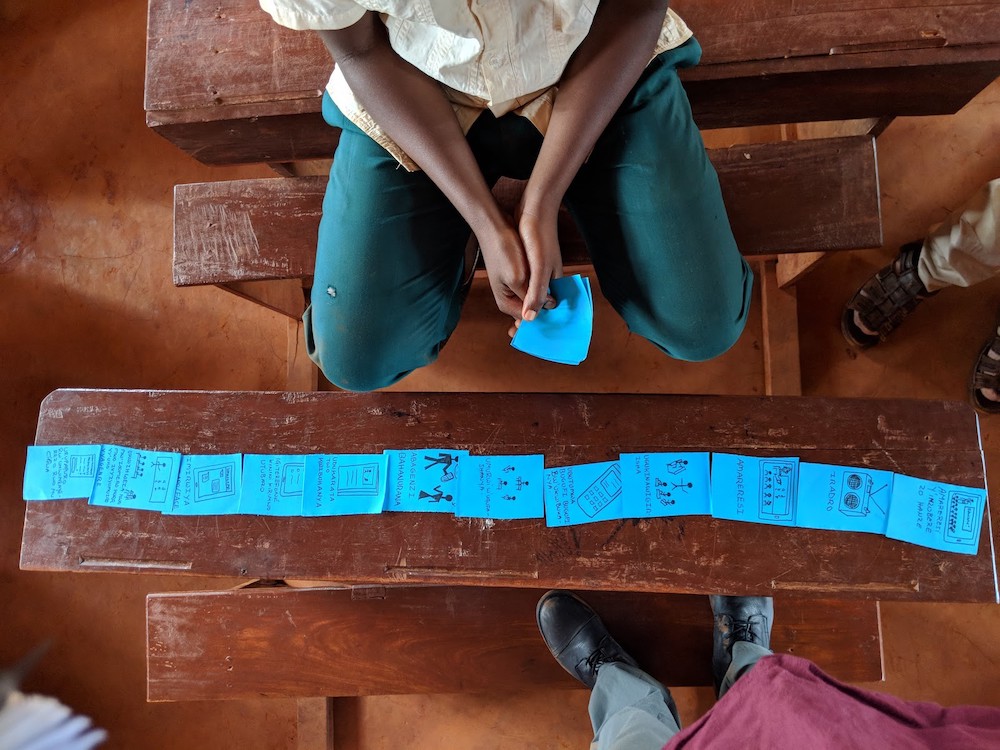
EmpaTeach
Helping teachers to end physical violence in schools
EmpaTeach is a project that aims to reduce corporal punishment in low resource settings by helping teachers learn positive discipline methods, change destructive thought patterns, and plan ahead for positive reactions to students’ misbehavior.
Violence erodes the foundation children need to live healthy and productive lives, and can have devastating, long-lasting effects on their development, school performance, and overall educational attainment. Schools are one of the most common settings where children experience violence. Sixty-eight countries still do not have laws protecting children against physical punishment in schools - leaving about 720 million school-age children vulnerable to violence. And even where laws do exist, additional efforts are needed to turn policy into practice. Little evidence exists about how best to end the practice of teachers using corporal punishment against students, particularly in crisis-affected contexts. What’s clear is that current approaches, including rulemaking and awareness-raising campaigns, are not enough.
EmpaTeach was co-designed with refugee teachers in partnership with the Behavioral Insights Team. It was tailored specifically to be a low-intensity, contextually adapted program for a resource-constrained humanitarian setting. The program is currently being implemented in Nyarugusu refugee camp in Tanzania, where a staggering 82% of students report having experienced physical violence from a school staff member in their lifetime. This project is expected to reduce incidents of violence in schools, affecting thousands of children.
Drawing on insights from the behavioral sciences and cognitive behavioral therapy, teachers take part in a 10-week intervention led by their own peers in which:
- Teachers are provided with tablets to watch locally-made videos demonstrating how to effectively implement classroom management techniques.
- The program also guides teachers through exercises to identify their personal triggers in the classroom (such as a student disrupting a lecture) and explore how their thoughts and feelings lead to reactions.
- This becomes the basis for a planning exercise, where teachers commit to acting in positive ways when triggered and rely on self-regulation techniques to avoid escalation of negative thoughts or feelings.
The program content focuses teachers on their values, empathy-building exercises, and emphasizes teachers’ and students’ potential to change and overcome challenges with effort – all things that evidence from other contexts suggests will amplify impact. Teachers are grouped with peers who serve as a support network, commitment device, and new social reference point.
Results so far are promising. A small-scale pilot study in two schools in Mtendeli Refugee Camp showed a lower incidence of physical and emotional violence in schools that received the program, compared to non-program schools. Students in schools that experienced EmpaTeach reported feeling more connected, less depressed, and more engaged in school than students in non-program schools. Teachers in program schools show slightly less favorable attitudes towards the use of corporal punishment in a variety of classroom situations, but we did not observe a difference regarding teachers’ general opinions about physical punishment.
These findings have been used to make further adjustments to the program, and EmpaTeach is currently being independently evaluated in a mixed-methods cluster randomized controlled trial by the London School of Hygiene and Tropical Medicine, Innovations for Poverty Action, the National Institute for Medical Research.